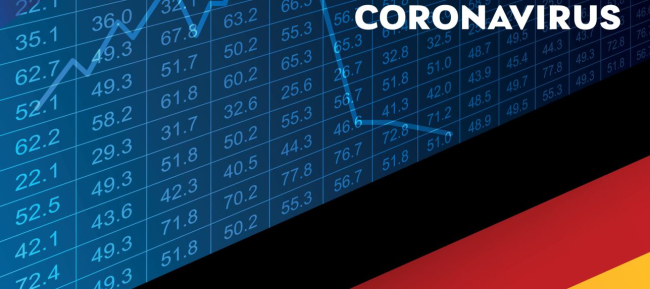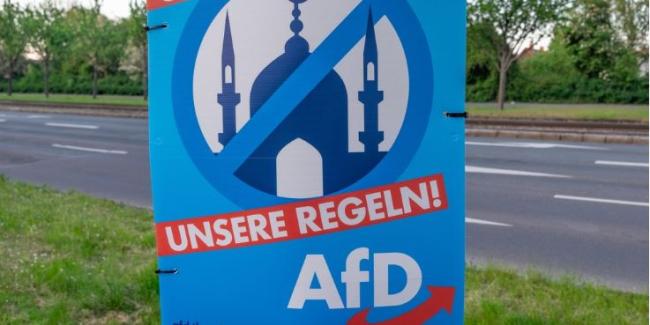German Economy
Germany is the leading economic power in Europe with a highly internationalized system. It is currently compelled to adapt to a declining globalization and a transition in its energy model.
German Economic Policy during the Corona-crisis. How Germany Intends to Support its Economy
Compared with other European countries, Germany’s management of the COVID-19 crisis has been efficient. Its health system has successfully coped with the challenge of the fight against the pandemic, the impact on employees has been mitigated thanks to allowances dedicated to furlough leave, business aids were important and quickly available, the government has been responsive.
Thirty Years after its Reunification, Germany's “European Moment”?
On October 3, 1990, after forty years of division, Germany once again became one state. Less than a year after the fall of the Berlin Wall, on November 9, 1989, the territories of the German Democratic Republic (GDR) became part of the Federal Republic of Germany (FRG) under Article 23 of its Basic Law.
Germany and the Economic and Monetary Union. Between the Search for Deeper European Integration and the Assertion of National Interests
Germany joined the creation of Economic and Monetary Union only with great hesitation and has tried to dictate the spirit and rules of operation of the Union.
Alternative for Germany (AfD): An Extreme Right-Wing Party?
The AfD - Alternative for Germany - was founded in 2013 to protest the Euro rescue policy. Originally conservative-liberal, but to the right of the CDU/CSU, the party presented itself after 2015 as the main opponent to Angela Merkel's migration policy. It subsequently achieved electoral success, including its entry into the Bundestag in 2017.
The Right-wing Extremism in Germany. An Underestimated Threat?
In 2018, the Federal Office for the Protection of the Constitution classified 24,100 people in Germany as right-wing extremists. More than one out of two right-wing extremists is described as “violence-oriented”. These figures demonstrate the high level of threat in the German constitutional democracy, which has already manifested itself in the form of various terrorist attacks against foreigners, religious communities and more recently politicians.

Germany: The Power Out of Phase
Germany has enjoyed a decade of sustained economic growth, benefiting from a very low unemployment rate and considerable trade and budgetary surpluses. This phase is now coming to an end. Some even believe that the German economic model needs to be rethought.
30 ans après la chute du Mur. Une Allemagne unifiée, une population désunie
Thirty years after the fall of the Berlin Wall, celebrations have taken a disappointing turn. The electoral successes of the far-right German party AfD (Alternative for Germany (in German: Alternative für Deutschland)) in Saxony, Brandenburg and Thuringia in September and October 2019 reflect growing unease and discontent in the new Länder faced with mitigated outcomes of the unification.
Social Networks: The Fight Against Illegal Content in Germany
The German Legislation on Improving Law Enforcement in Social Networks (Netzwerkdurchsetzungsgesetz – NetzDG), which came into force on October 1, 2017, is the legislative response to how social networks handle complaints about illegal content.
Where Is the SPD Going? The German Social Democrats and the Way out of Crisis
Whether we think of France, Greece, the Netherlands, Poland, Austria or Germany, the social democratic or socialist parties in Europe are losing ground or even facing dissolution. Ironically, the crisis of the Social Democratic Party of Germany (SPD) began with the resounding victory of Gerhard Schröder in 1998.
Tackling the Root Causes of Displacement: the German Discourse
In Germany, an important role is ascribed to development policy when considering the question of how to deal with the causes of displacement and irregular migration. Development policy seeks to enable (potential) migrants to enjoy brighter prospects in their countries of origin through job creation measures so that they do not embark on the dangerous journey to Europe (or Germany) in the first place.
Support independent French research
Ifri, a foundation recognized as being of public utility, relies largely on private donors – companies and individuals – to guarantee its sustainability and intellectual independence. Through their funding, donors help maintain the Institute's position among the world's leading think tanks. By benefiting from an internationally recognized network and expertise, donors refine their understanding of geopolitical risk and its consequences on global politics and the economy. In 2025, Ifri supports more than 80 French and foreign companies and organizations.












